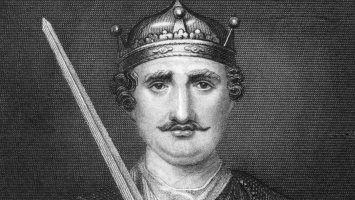Top 7 Interesting Facts about Hestia
One of the most renowned and revered Greek goddesses was Hestia, the goddess of the hearth, home, and domestic life. She had a significant impact on people's ... read more...daily lives because of her kind disposition. Although she is not well-known in literature or movies, her life is full of fascinating details. Do you have any curiosity about this goddess? If yes, let's follow Toplist to discover some interesting facts about Hestia.
-
Zeus was one of Hestia's siblings and the ruler and monarch of the gods. He was on a mission to topple the Titans' rule along with his other siblings. Hestia enlisted with the crew and carried out the task. After Zeus had won over the Titans, he gave each of the siblings specific positions and duties. At that time, Hestia was tasked with caring for the fires in the Olympian hearth and feeding the gods.
She consequently rose to become the hearth's Goddess. She prepared the fatty, flammable parts of animal sacrifices to the gods over the fires of the Olympian hearth. The goddess stood for domestic life and assisted the Greeks in cooking with fire because the hearth belonged to food and cooking. Every time they cooked the food, they were required to offer it to Hestia.
She also taught the Greeks how to build dwellings, particularly the men. The populace was also instructed in how to keep the peace within the household. She became identified with being the goddess of the home as a result. She was also the Goddess of hospitality and travel, in addition to this. Every time a person moved, they took a flame from the sacred hearth with them. They would believe that Hestia's fire might keep them under her protection.
Photo: truyencotich 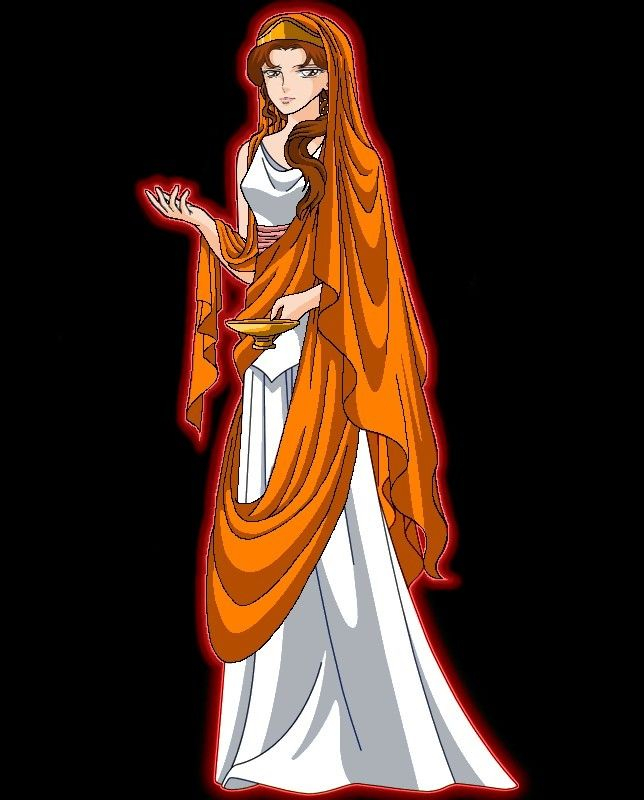
Photo: pinterest -
The three virgin goddesses of the Greek religion were Hestia, Athena, and Artemis. As a result of the three goddesses' gifts of grace, charisma, and intelligence, many Greek gods, including Poseidon and Apollo, revered them. Hestia was offered to marry by Poseidon, the storm god, but she turned him down. Apollo also made a proposal to her, but he was also turned down. In order to stop the conflict between the suitors, she instead prayed to Zeus to grant her eternal virginity. She got her request, and she stayed a maiden forever.
Priapus, a minor fertility deity, made an attempt to steal her virginity while Goddess Rhea was hosting a party. The celebration was for the huge triumph of the Greeks over the Titans. Hestia decided against attending the celebration and retreated to the woods, where she passed out. A braying donkey roused Hestia from her sleep, and when drunk Priapus discovered Hestia and attempted to rape her, he was stopped. Other Olympians soon showed up and confronted Priapus. Since then, he has been prohibited from celebrating. On Hestia's feast day, the donkeys were also given a break and decorated.
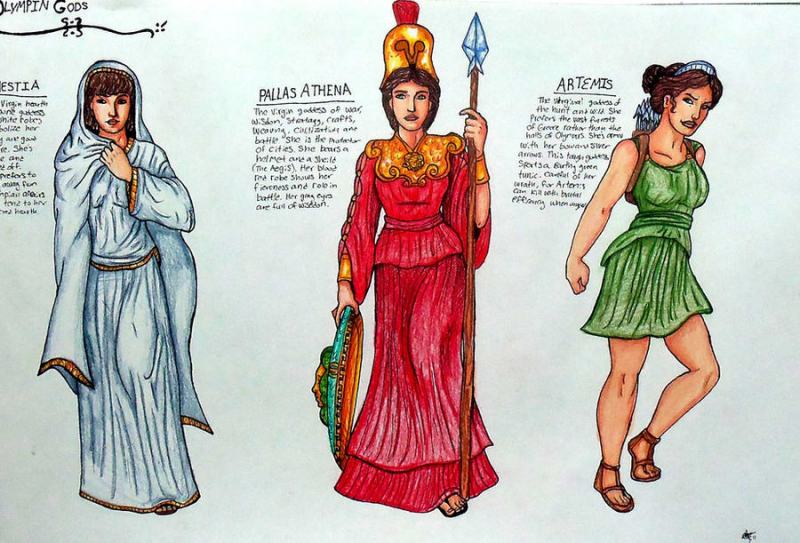
Photo: deviantart 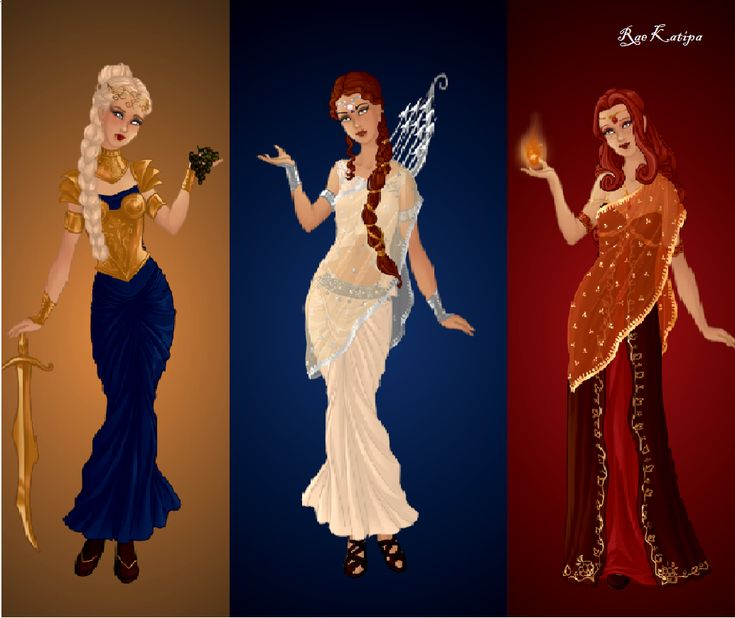
Photo: pinterest -
Cronus and Rhea had a child named Hestia. As the Titans' monarch and the God of time, Cronus presided over the planet. Rhea, his wife, was seen as productive. Hestia was the firstborn to parents who had rescued her mother's five siblings, Poseidon, Hades, Demeter, Hera, and Zeus.
Cronus swallowed all of his children as soon as they were born out of concern that he might be toppled by them. Except for Zeus, who was the last and youngest, Hestia was the first to be swallowed. He had been afraid of losing his reign to his children ever since Uranus had forewarned him of this. Zeus, however, used Metis' assistance and forced Cronus to consume a concoction. Cronus was forced to vomit all he had consumed by the potion. The final person to emerge from Cronus was Hestia. So one of the interesting facts about Hestia is she is both the oldest and youngest daughter because she was "first to be consumed... and the last to be yielded up again."
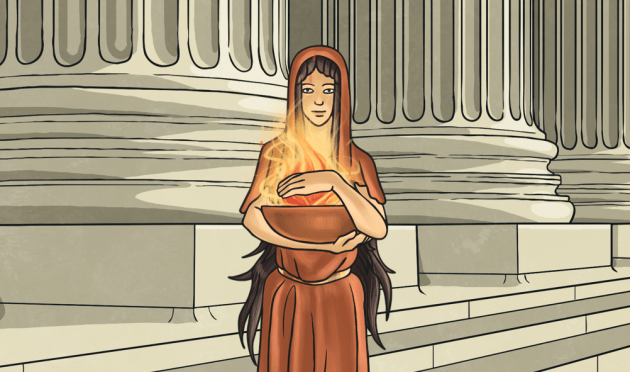
Photo: twinkl 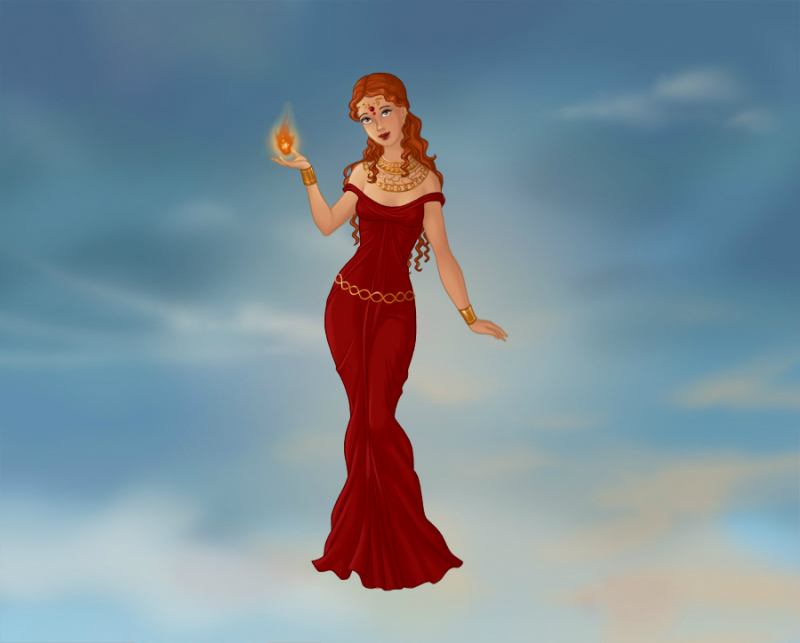
Photo: deviantart -
To put an end to the conflict between Poseidon and Apollo, Hestia remained virgin for all time. By laying her hand on Zeus' head, she professed her eternal virginity. Zeus was thrilled and gave Hestia the gift of everlasting virginity. Additionally, he gave her the main spot in the house.
Every home would now have a hearth like Hestia's. She received the first offering from each family. Every meal began with an offering to her and ended with one. Zeus also permitted her to participate in worship in each temple. She may receive the first offering made to God by humans.
Greeks erected a shrine in honor of Hestia, the virgin goddess. Six virgins were delegated to serve at that temple. The virgins were obligated to uphold their commitment to eternal celibacy. Any of the selected virgins who disregarded the vow received severe punishment. The virgins were sentenced to being buried alive.
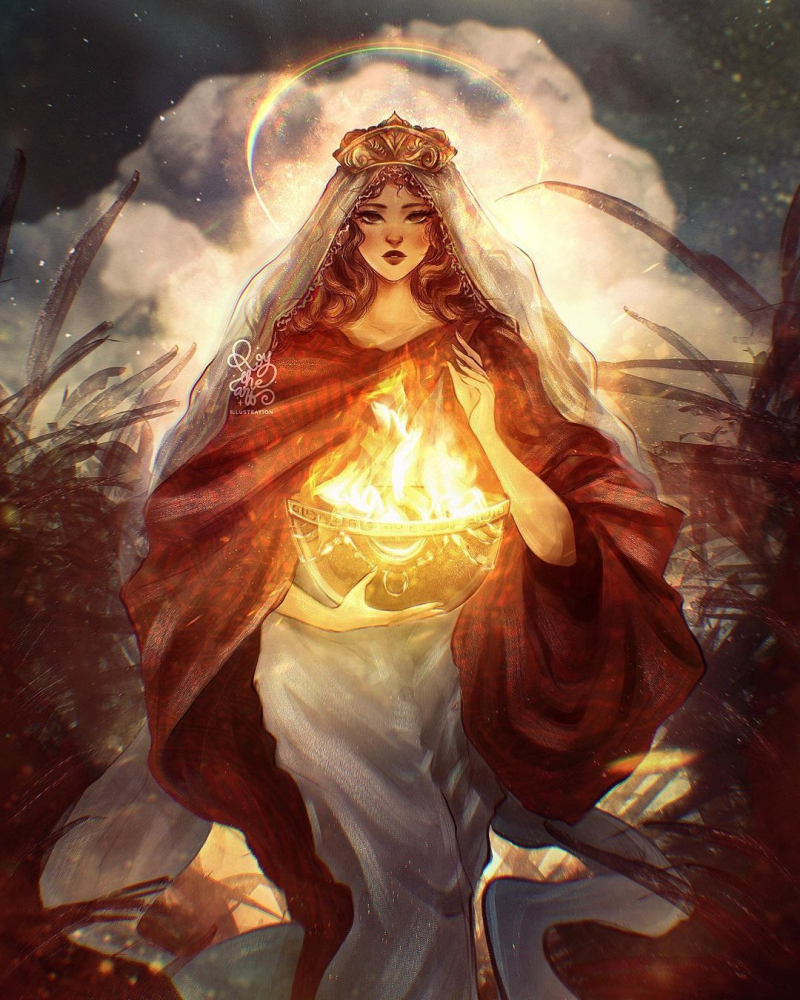
Photo: pinnterest 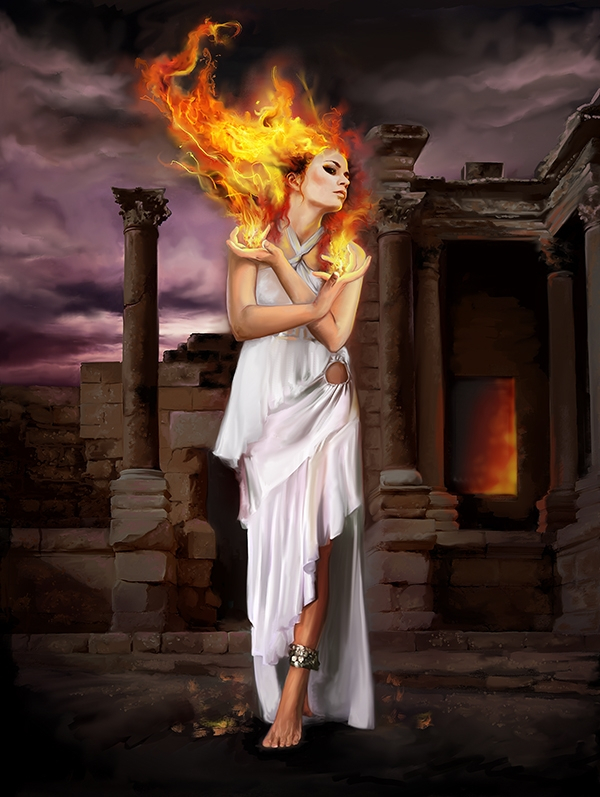
Photo:comicartfans -
Roman religion has been greatly influenced by Greek religion. Hestia is included in the Roman version, then. They worship Vesta as the Goddess of the hearth, home, and family.
In Roman religion, Vesta is the virgin goddess of the hearth, home, and family. Rarely did she appear in human form; instead, the flames of her temple in the Forum Romanum more frequently served as representations of her. Only the Vestal Virgins, who served as her priestesses and guarded specific precious things within her temple, prepared sacred flour and salt for ritual sacrifices, and maintained Vesta's sacred fire at the temple hearth, were allowed entry. They were punished by being buried alive if found guilty of inchastity since it was believed that their virginity was crucial to Rome's survival.
A phallus that materialized in the flames of the holy hearth, the manifestation of the goddess united with a male supernatural being, miraculously impregnated a virgin priestess in one of the rare myths that depicted Vesta and her priestesses. Romulus and Remus, as well as the kind-hearted king Servius Tullius, were conceived in this manner, according to various Roman myths. Vesta was one of the twelve most revered gods in the Roman pantheon, the Dii Consentes.
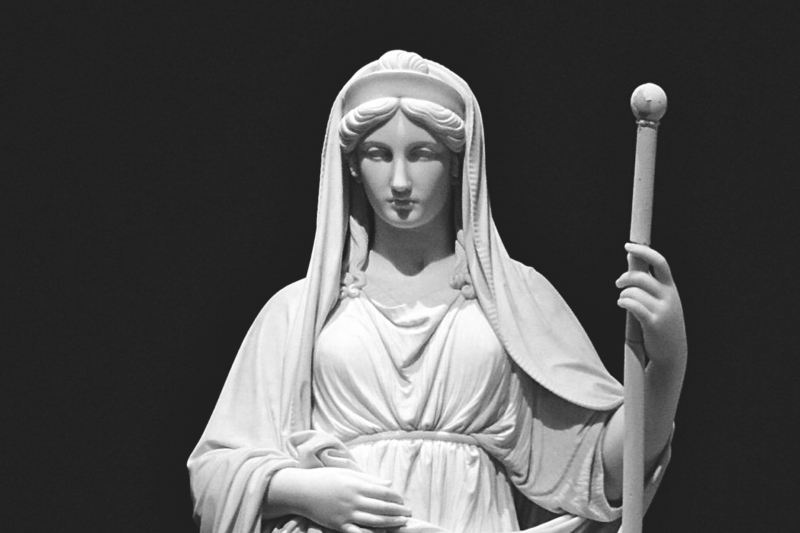
Photo: mythopedia 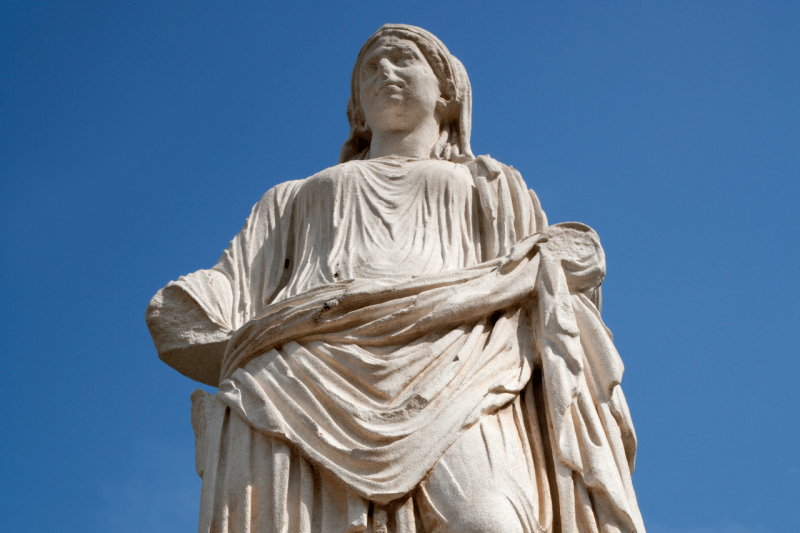
Photo: timelessmyths -
Hestia is characterized as a virgin Goddess who is kind, steady, serene, forgiving, and dignified. She was confined to Mount Olympus by her domestic responsibilities. Due to her tremendous virtue, she was never included in the scandalous and exciting myths.
In contrast to the fire of the forge used in blacksmithing and metalworking, the domain of the god Hephaestus, Hestia is connected with the hearth as a physical object and the abstractions of community and domesticity. She has only sometimes and insecurely been portrayed. She occasionally appears in works of classical Greek art as a modest woman wearing a veil and robe. She may occasionally be depicted with a staff or standing by a big fire. She does not bother to choose a symbol for herself, according to Robert Graves, and is seated on a simple wooden throne with a white woolen cushion. A domestic pig served as her companion animal for sacrifice.
Hestia was the most compassionate goddess in Greek mythology. She was never involved in any disputes or scandals. She had always sought to maintain social and domestic harmony. She was one of the twelve Olympian gods because of her benevolent virtue.
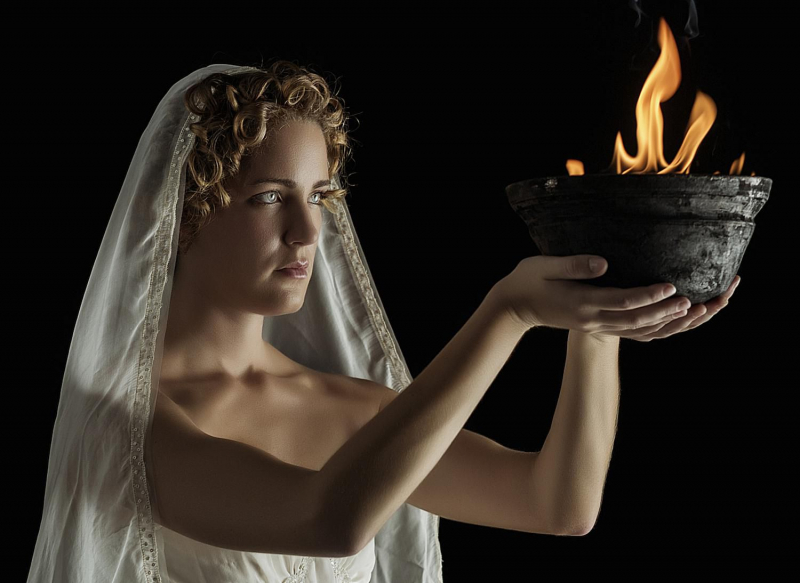
Photo: learnreligions 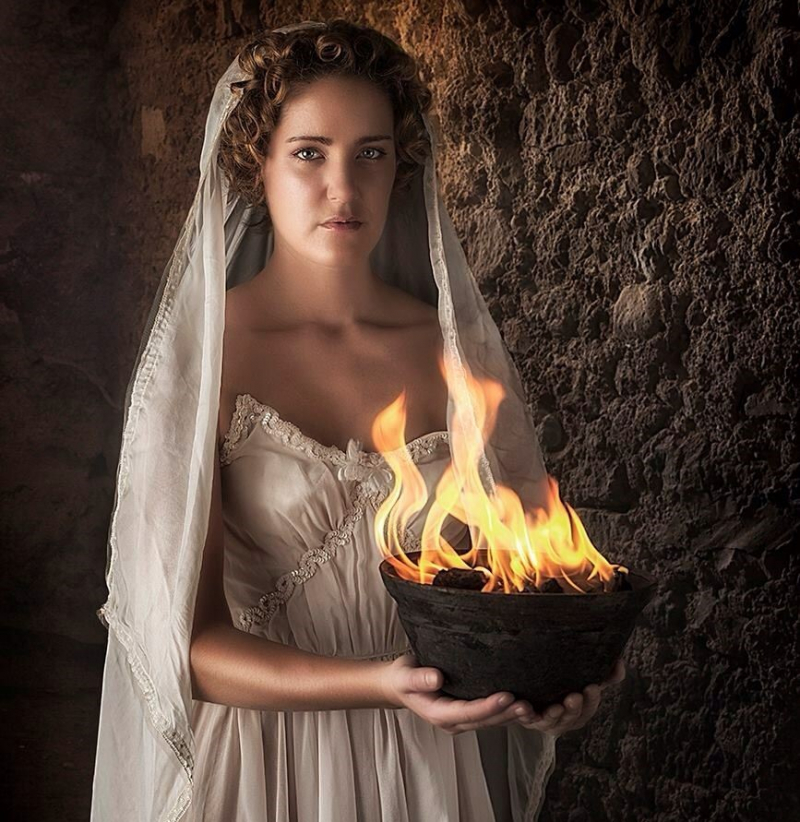
Photo: Pinterest -
One of the interesting facts about Hestia is she had very few temples devoted to her, despite being such a well-known deity. She really had very few statues built in her honor because it was believed that she embodied hearth fire. As the scholar Aristotle once commented, "The sound of a crackling from a burning fire was Hestia's welcoming laughter," the idea that the goddess of the hearth embodied both domestic and sacrifice flame spread widely.
Hestia is worshiped in a variety of accessible, everyday places, despite the fact that there aren't many effigies of her and few temples specifically dedicated to her. Hestia was exalted and sacrifices were made to her at all temples, each of which had its own hearth, a practice never before observed in the worship of other Greek deities.
There were only two locations where her cults were established: Sparta and Ermioni. In both public and private hearths, or "Prytaneion," people in the city worshiped her. The flame was always kept alive in these public and private spaces. A family's domestic and spiritual care failed when a hearth fire was accidentally extinguished at home. A breach of responsibility to the larger society occurred if it took place at a public hearth. However, if necessary, the flames could be doused by rituals and then re-lit following the purification, renewal, and completion ceremonies.
Photo: hosonhanvat 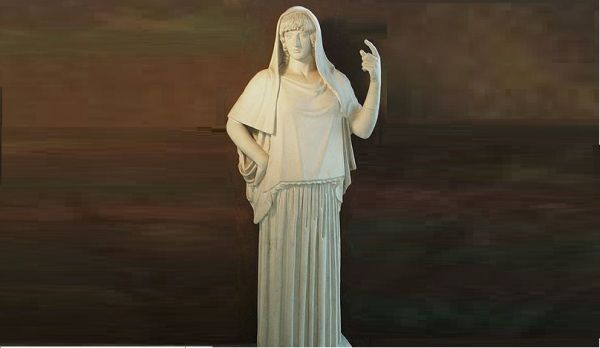
Photo: beautytherapyabsolution













